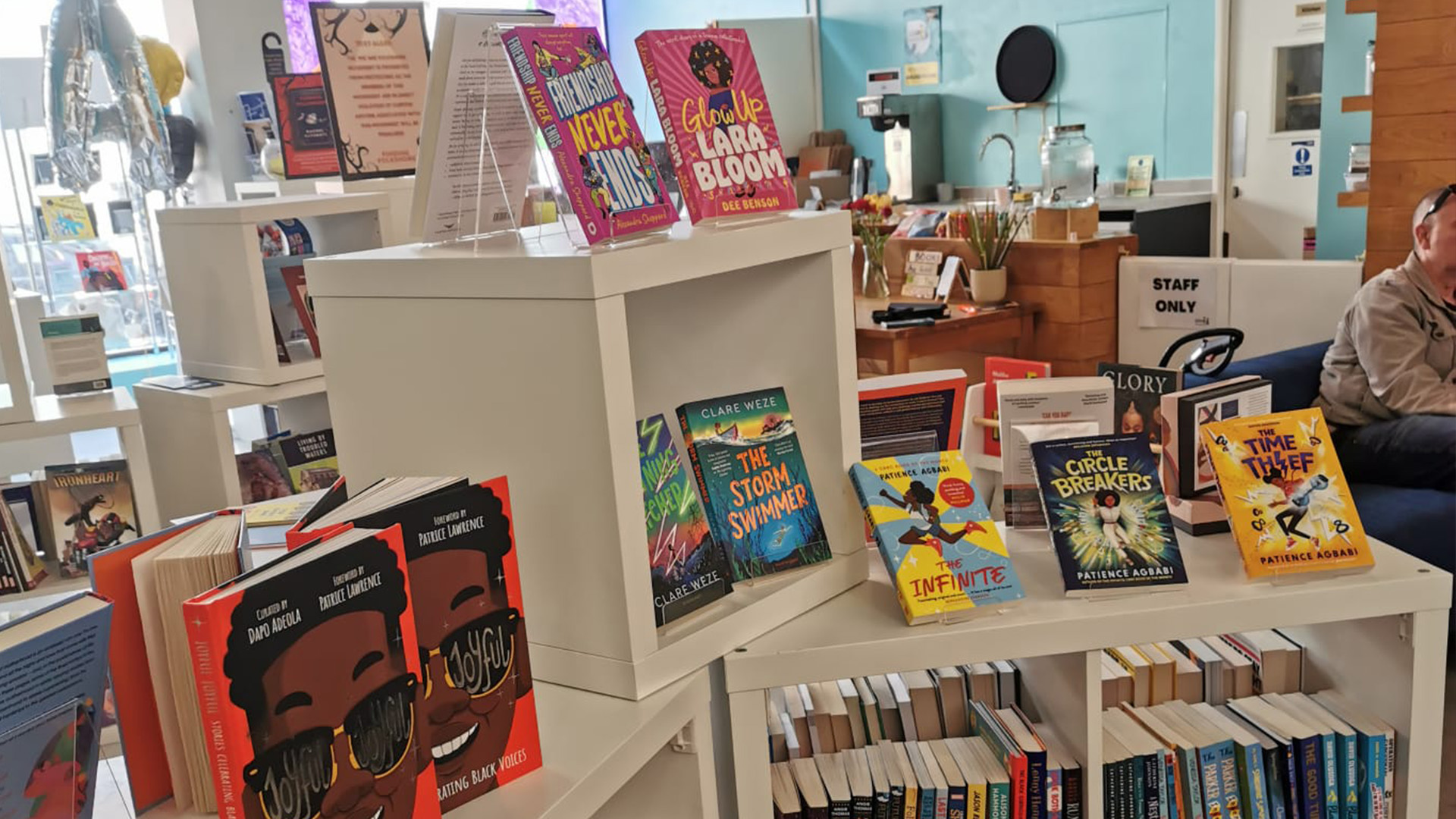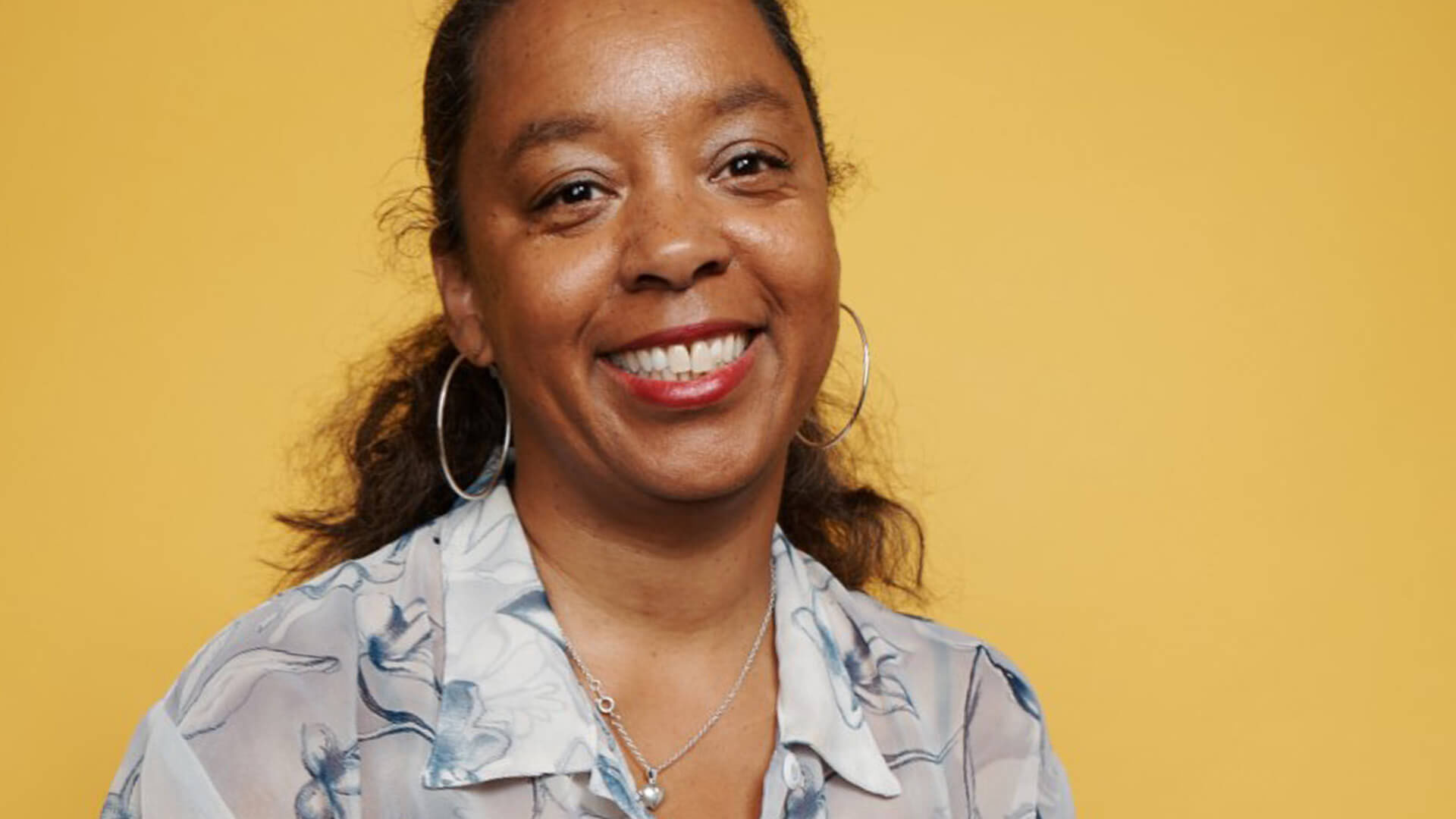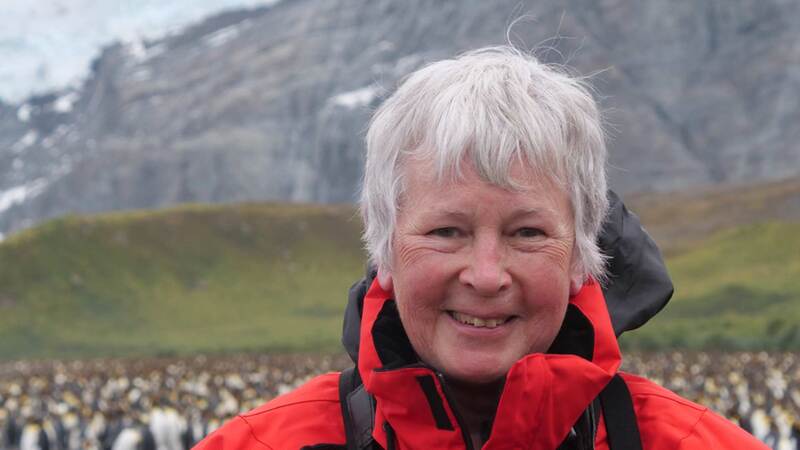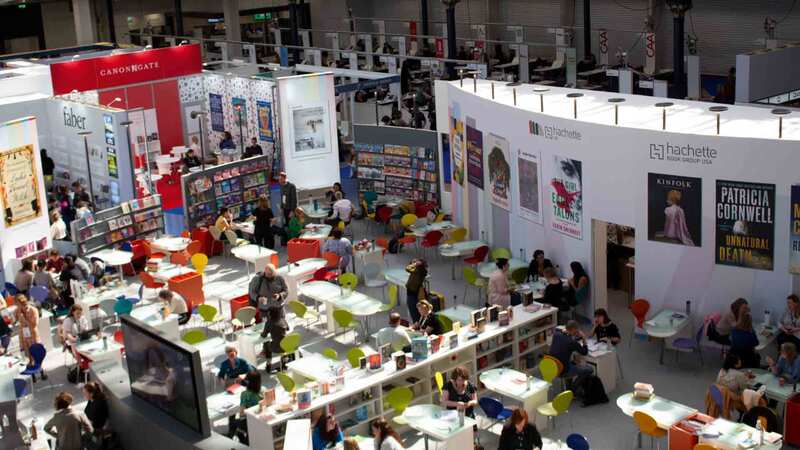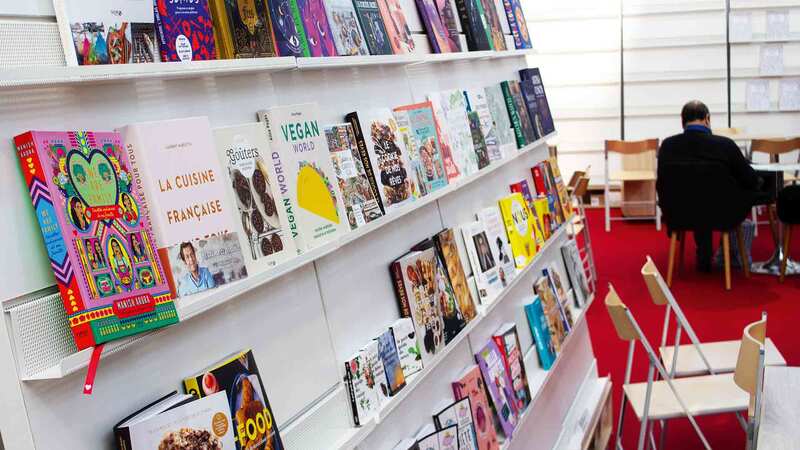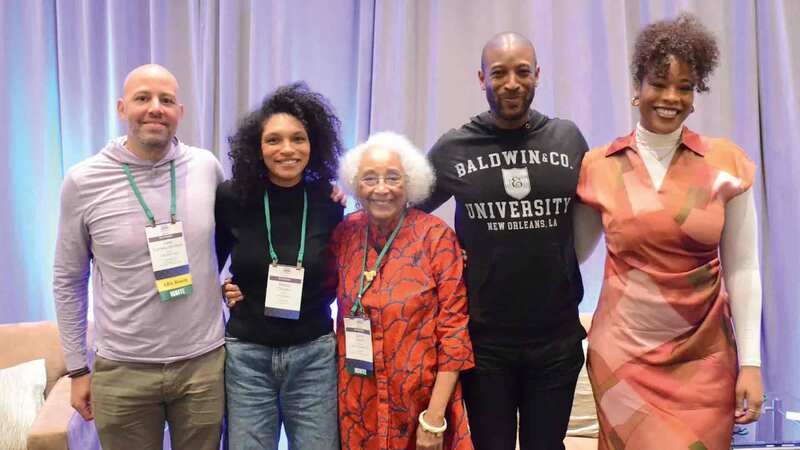You are viewing your 1 free article this month. Login to read more articles.
Afrori Books: Brighthelm Community Centre, Brighton
The award-winning Brighton independent has found a new lease of life after a recent move, with more freedom to spread the word about books by Black authors and illustrators.
A bookshop can offer people the opportunity to connect, explore ideas and find a community. No one understands this better than Carolynn Bain, founder of Afrori Books, a Brighton bookshop stocking titles by Black authors. “Someone asked me once what I want people to feel like when they come into the shop, and I said I want them to feel like they came into my living room,” Bain says. “We work really hard at making sure people experience Caribbean hospitality—we make a fuss about everybody, we talk to everybody, we make people feel really welcome.”
Bain opened Afrori during the pandemic, propelled by the loss of her job as an event manager, as well as by the murder of George Floyd. The bookshop recently moved to new premises in the Brighthelm Community Centre. It was previously operating out of a building owned by the arts charity Lighthouse, when news of a rent hike threatened it with closure.
“The aim was always to create a safe space for Black people and their allies, and we’ve worked really hard at that,” Bain tells me. She adds: “People come because they feel safe here, they feel they can ask questions, that they are not going to have to deal with aggressions and racism and the things that they often deal with in their everyday lives. That’s why I felt it so deeply and really painfully when we thought we were going to lose the shop—that’s what would reduce me to tears. I felt something was being taken away from our community.”
Bain has worked to build a bookshop where people can learn and feel supported. Customers can choose from an array of books by Black authors, selected by Bain in collaboration with publishers, and attend one of many workshops hosted by Afrori.
After winning Individual Bookseller of the Year at the British Book Awards last week, Bain said in her acceptance speech: “Black authors are doing incredible work and they deserve the platform, they deserve the acknowledgement, they deserve the space in this industry. Black people deserve to see themselves represented in books.”
She adds: “A lot of the workshops we run are in answer to the problems our customers have told us they have. We run a hair education workshop because we had a white mum come in with a mixed-race child; she cried and said she did not know how to look after her daughter’s hair.” The anti-racist kids’ club is another workshop run by Afrori, alongside poetry and writing workshops, and safe spaces with groups in the community. Afrori now also runs Brighton Book Festival (20th-25th June), which Bain co-founded with The Feminist Bookshop. “That was a massive shift for us, in terms of being taken seriously,” she tells me.
I spoke to Bain at the beginning of the first full week at Afrori’s new premises. She had held a launch party at the weekend, which customers came to bringing gifts for the shop. “It felt like a housewarming,” she says, adding that many customers “feel like old friends”. The day started off with a craft morning for families, half of whom stayed for the whole day. “They hung out in the shop, they brought lunches for their kids, stayed and enjoyed the day.”
The shop was hosting a book club with T S Eliot Prize-shortlisted poet Yomi Sode the day after our call. “We wouldn’t have been able to do that in the previous space,” Bain tells me. The club is funded by the University of Brighton, but in Afrori’s last premises this money would have gone to fund the space, as Bain had to pay an additional fee to use it for evening events. This money can now be used to pay the author. “It means we are able to cover expenses for Yomi to come from London and run a book club for us,” she explains. “It means we’re able to offer that event for free to the community. These are all massive changes, because Black authors don’t get the same platforms and experiences that their white peers get.” Bain previously had to ask publishers to cover the hire fee for the author. “We were having publishers just saying ‘no’,” she explains.
Right at home
The space the shop relocated to mattered to Bain, and the team has transformed it into something that feels ready to welcome a community. “We had no autonomy over the space at all at our previous place,” she says. “We weren’t allowed to paint or do anything like that.” Bain has found that freedom in the new shop, and says “there’s definitely a sense of ownership and autonomy”—including a lick of paint on the walls and lively window displays.
On one of the six-foot windows of the new premises, her daughter Olivia Bain, who works full-time in the shop, has painted the cover of Krystle Zara Appiah’s Rootless (The Borough Press). The title is the shop’s book of the month for May, and Bain describes its cover to me, saying that it features the silhouettes of a Black man and woman facing each other. “Our new venue is on the corner of Queen’s Road in Brighton, and eight million people walk down Queen’s Road every year,” she says. “Let’s just say that half of them notice us: that’s millions of people gaining an awareness of Black authors, just by the window alone.”
Top picks from Afrori Books
- UnMothered by A J Akoto Arachne Press, 13th July, pb, £9.99, 9781913665807
- All the Fighting Parts by Hannah V Sawyerr Amulet Books, 26th October, hb, £13.90, 9781419762611
- A Song of Me and You by Mike Gayle Hodder & Stoughton, 6th July, hb, £16.99, 9781529344844
- The Battle Drum by Saara El-Arifi HarperVoyager, 25th May, hb, £16.99, 9780008450458





